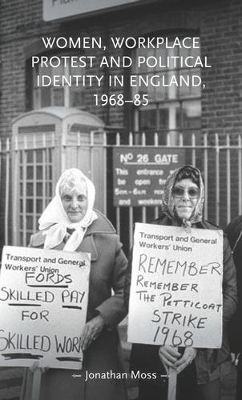Gender in History
1 total work
Women, Workplace Protest and Political Identity in England, 1968-85
by Jonathan Moss
Published 4 April 2019
This book draws upon original research into women's workplace protest to deliver a new account of working-class women's political identity and participation in post-war England. Focusing on the voices and experiences of women who fought for equal pay, skill recognition and the right to work between 1968 and 1985, it explores why working-class women engaged in such action when they did, and it analyses the impact of workplace protest on women's political identity. A combination of oral history and written sources are used to illuminate how everyday experiences of gender and class antagonism shaped working-class women's political identity and participation. The book contributes a fresh understanding of the relationship between feminism, workplace activism and trade unionism during the years 1968-1985.
